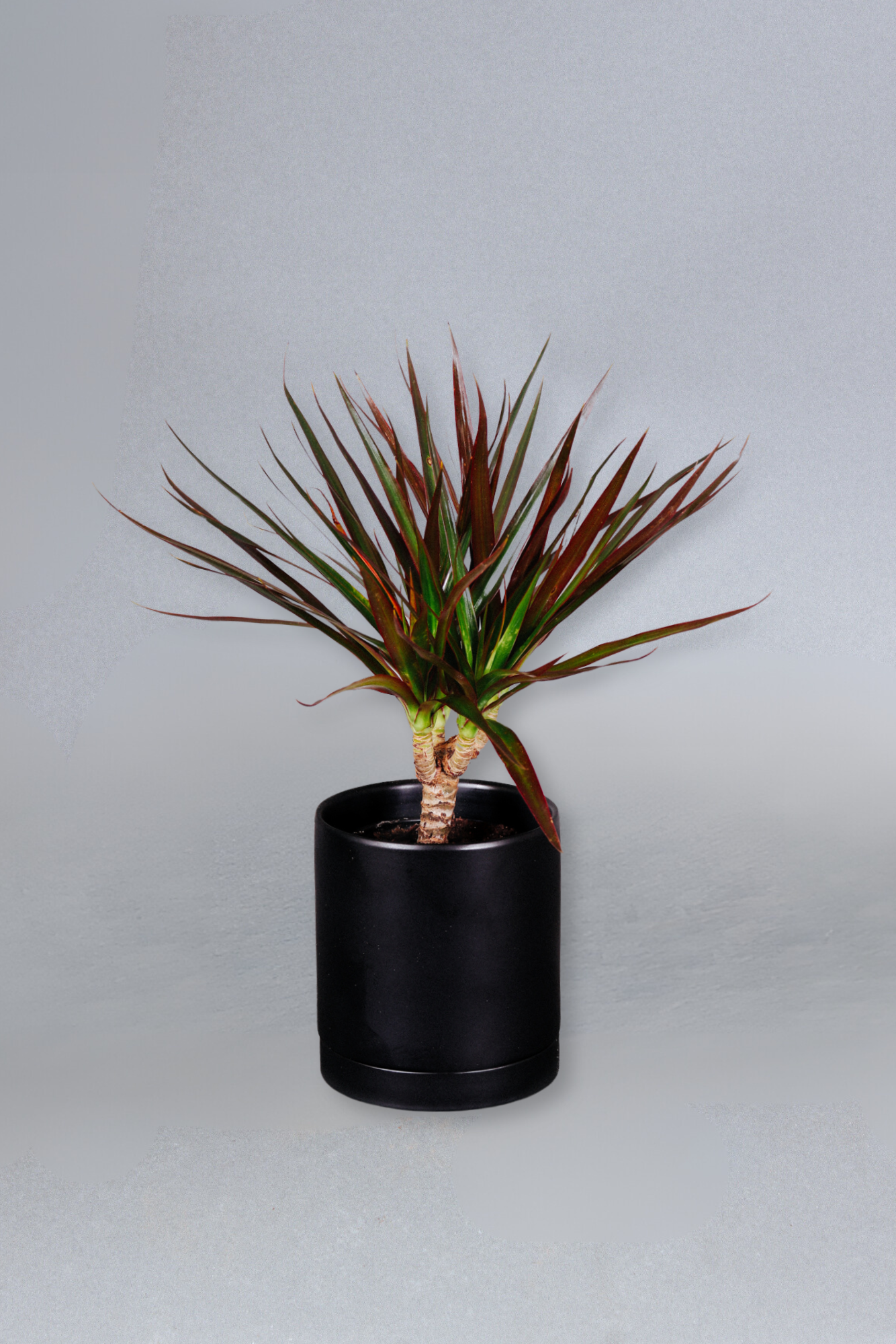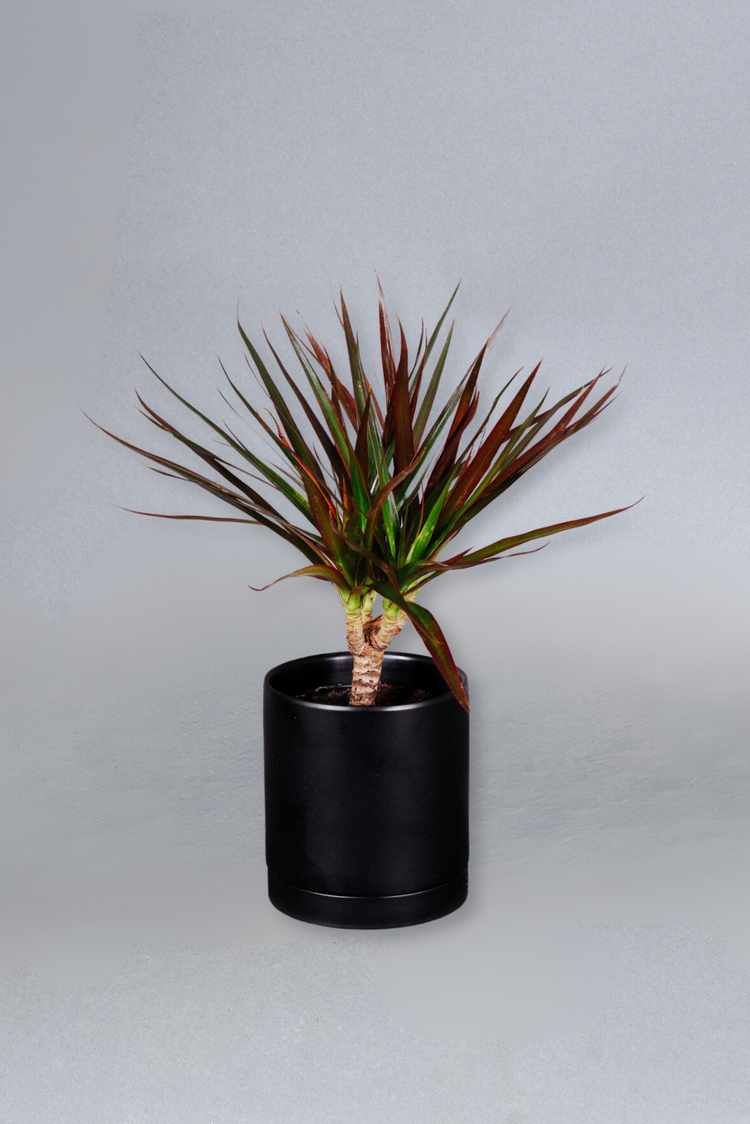Our indoor houseplants intuitively adapt to seasonal changes, many of them going into rest, or dormancy, during fall and winter. For them, this means that they’ll stop or slow growth and prepare their tissues for fewer hours of light and nutrients. For us, it means reducing some steps in our care routine and being attentive to their adjusting needs. While adjusting our own routine can be trial and error, it is vital to ensuring your plants are heathy enough for the next growing season.
Growing season is usually marked by early spring through early fall, while rest season begins with the first frost of Fall through winter’s last frost. We recommend following our seasonal care guide below to properly care for your plants during this essential and sensitive time of rest.
Tip #1: Reduce Watering Frequency
Overwatering is the most common mistake we make during the winter months when plants require less of it. Most soil can dry 2 or more inches before needing to be watered again. Depending on the plant and light levels, waterings can be as infrequent as bi-weekly or monthly. Yellow leaves and soggy soil are the most common signs of overwatering.
Remember that along with fewer hours of light to dry the soil, water also activates nutrients that feed the roots, requiring significant energy from the plant while it rests. Once growing season resumes, you can gradually increase the watering frequency again.
Tip #2: Do Not Fertilize
Treating plants with fertilizer after the start of fall interrupts the plant’s rest cycle and can be very damaging. Plants benefit from fertilizer treatments during spring and summer, when they have the energy for new growth. If you plan on repotting during the growing season, allow the plant to settle for 6 weeks before applying fertilizer.
Tip #3: Avoid Repotting
Repotting can cause a plant stress and may even cause shock if done during a time of rest. Unless absolutely necessary, avoid repotting your plants during fall and winter. The best time to repot is at the start of the growing season, or before fall arrives.
Tip #4: Place Away from Drafts, Cold, and Heat
Cold drafts found near windows and doors can create a disruptive environment for rest, along with heat coming from vents or radiators. Consider moving your plants to a stable spot away from cool drafts or extreme heat, where they can rest for the remainder of the season (while maintaining light levels). Indoor temperatures between 65º-80º are ideal for most plants.
Tip #5: Increase Humidity
Desert-native cacti and succulents are the few plants that will thrive in dry, winter air, since most other plants come from humid regions. To keep your tropical plants happy during the cold months, add moisture to the air by:
- Misting leaves 2-4x per week with a spray bottle.
- Creating a pebble tray to place underneath the pot.
- Placing a humidifier nearby.
- Grouping humidity-loving plants together.
- Placing humidity-loving plants in humid rooms, like a bathroom or kitchen with proper lighting.
Tip #6: Keep an Eye Out for Pests
Dry indoor air can create a suitable environment for pests that cause severe harm to our beloved plants. Already-stressed plants are especially susceptible to pest infestations. Regularly check the underside of leaves, stems, and crevices for signs of pests and treat promptly. Read more about common pests and treatments here.
Tip #7: Look Forward to The Growing Season
By adjusting your care routine and listening to your plant’s needs, you’ll be preparing them for a successful growing season. At the start of spring, lightly prune plants to promote new growth, propagate, repot, fertilize, and gradually move them outdoors, if desired. Let this seasonal transition be a reminder, even for ourselves, to move at a slower pace, find rest, and take care.
For specific seasonal care questions, we offer all Grounded customers free Office Hour consultations with our Plant Specialist. Please book your personal call here.








